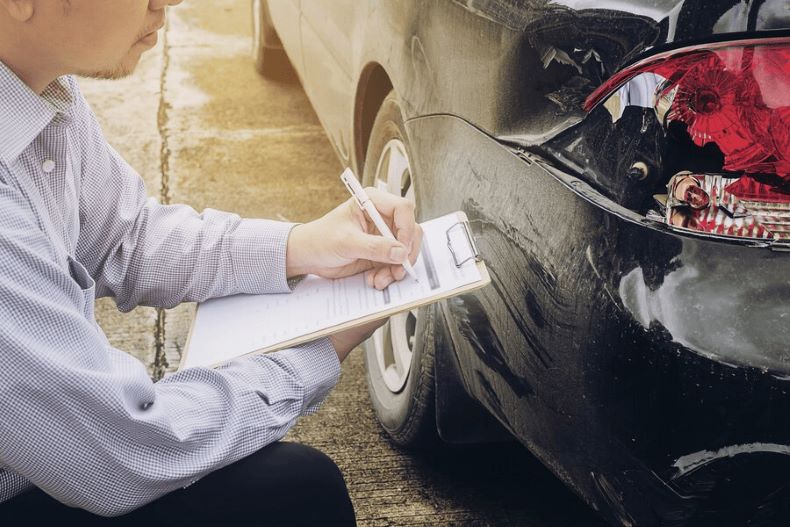
Car accidents can be harrowing experiences, and navigating the aftermath, especially when you’re not at fault, can be equally challenging. One burning question that often arises is whether your insurance rates will increase after claiming a no-fault accident.
This guide explores how a not-at-fault accident can impact car insurance premiums. Covering fault determination, its effects on your driving record, and critical factors influencing rates, we provide concise insights and guidance to protect your rights.
Understanding No-Fault Accidents
A “no-fault” car accident is a term commonly used in the insurance industry. It indicates that regardless of who caused the accident, each party’s insurance company covers their respective policyholders’ damages and medical expenses. While this system is designed to expedite claims processing and reduce legal complexities, it doesn’t shield you from concerns about potential premium hikes.
Do Insurance Rates Go Up After a No-Fault Accident?
In a no-fault insurance system, each driver’s insurance typically covers their injuries and damages, regardless of who was at fault in the car accident. No-fault systems are designed to streamline the claims process and ensure that individuals receive compensation from their own insurance companies without having to establish who was responsible for the accident.
In such systems, insurance rates may not go up for an individual solely because they were involved in a no-fault accident. Since fault is not a determining factor in the claims process, insurers may not increase rates based solely on the fact that their policyholder was in an accident.
When Does Your Insurer Raise Premiums?
While a no-fault accident might not automatically lead to increased premiums, there are situations where your insurer could raise your rates:
Frequency of Claims: If you have a history of multiple claims, regardless of fault, your car insurance company might view you as a higher risk, prompting a premium increase.
Severity of Claims: The extent of the damage in your previous claims can influence your premiums. More severe accidents may lead to higher rates.
At-Fault Accidents: These incidents can contribute to a premium hike if you’ve been involved in at-fault accidents in the past.
Traffic Violations: Moving violations like speeding tickets or reckless driving can also impact your insurance rates.
Understanding these factors is crucial for anticipating how a no-fault accident might influence your premiums.
How Is Fault Determined in an Accident?
Before diving into the impact on car insurance costs, let’s explore how fault is determined after an accident. Insurance companies rely on various factors, including police reports, eyewitness accounts, and sometimes even traffic camera footage. The goal is to establish who was at fault in the accident.
If you’re not the at-fault driver, ensuring that the official record reflects this is crucial. A police report stating you were not responsible for the accident can be robust evidence when dealing with insurance claims.
Does a No-Fault Accident Reflect on Your Driving Record?
One common concern is whether a no-fault accident will tarnish your driving record. Generally, if you weren’t at fault, the accident may not appear on your record. However, this varies by state, and it’s wise to confirm the local regulations in Nevada.
Your driving record plays a pivotal role in determining your insurance premiums. Accidents, especially those deemed your fault, can result in higher rates. Fortunately, a no-fault accident might not directly impact your driving history.
How Does a No-Fault Accident Affect Your Auto Insurance Rates?
According to a 2021 survey conducted by The Zebra, the impact of a no-fault accident on annual auto insurance premiums was observed to be an average increase of approximately $67 in 2020. This study examined the average 6-month premiums from various prominent auto insurance providers for individuals with a no-fault accident on their driving records.
In the survey, USAA showed an average 6-month premium of $567 for drivers with a no-fault accident, while Nationwide had an average premium of $639. GEICO and State Farm followed closely with average premiums of $642 and $677, respectively. Progressive exhibited a slightly higher average premium of $770, while Farmers and Allstate reported average premiums of $869 and $1013, respectively.
The Role of Insurance Companies in Determining Premiums
Auto insurance companies use complex algorithms to calculate premiums. These algorithms consider a multitude of factors beyond just your accident history. Your age, driving history, location, and credit score can all influence the final insurance premium amount.
Different insurers may weigh these factors differently. Therefore, it’s advisable to shop around and compare rates from various auto insurance providers to find the best fit for your circumstances.
Navigating Not-at-Fault Accidents in a No-Fault State
Nevada operates as a “fault” state, meaning the driver at fault is responsible for covering the damages. However, regarding insurance claims, Nevada follows a modified comparative negligence system. This means that even if you were partially at fault, you could still seek compensation, but the amount may be reduced based on your level of responsibility.
In a no-fault state, all parties involved in an accident turn to their own insurance companies for coverage, regardless of who caused the collision. Fortunately, Nevada’s fault-based system allows you to pursue a claim against the at-fault driver’s insurance.
No-Fault Accident Means No Rate Increase, Right?
The term “no-fault” can be misleading regarding insurance premiums. While it indicates that your auto insurance company will cover your expenses, it doesn’t guarantee your rates won’t increase. Many factors influence your premiums, and a no-fault accident is just one piece of the puzzle.
Understanding Fault Assessment Rules
In the aftermath of an accident, insurance adjusters evaluate the circumstances to determine fault. Nevada employs a comparative negligence system, meaning each party involved is assigned a percentage of fault. Understanding the fault assessment rules is crucial, especially when dealing with a not-at-fault accident.
You can pursue compensation for your damages if you’re found to be less than 50% at fault. However, if your fault percentage exceeds 50%, your ability to recover damages becomes more challenging.
The Importance of Auto Insurance Coverage
Your insurance coverage also significantly affects how a no-fault accident impacts your premiums. If you have comprehensive coverage, your auto insurance provider will more likely absorb the costs of a not-at-fault accident without penalizing you with a rate increase.
However, if you have minimal coverage, your out-of-pocket expenses might be higher, and a subsequent rate increase could significantly impact your budget.
Factors That Might Save You Money
While the aftermath of a no-fault accident can lead to increased premiums, some factors might help you save money:
Accident Forgiveness: Some insurance companies offer accident forgiveness programs, allowing policyholders to avoid premium increases after their first at-fault accident.
Multiple Vehicles: Insuring various vehicles under the same policy might make you eligible for discounts.
Safe Driving Programs: Completing defensive driving courses or participating in safe driving programs can sometimes result in lower premiums.
Traffic Violation Clean Slate: Maintaining a clean driving record with no traffic violations can contribute to lower insurance costs.
How an Attorney Can Help in a No-Fault Accident Case
Facing the aftermath of a car accident, even when it’s not your fault, can be overwhelming. Hiring an attorney can significantly ease the process. Here’s a brief overview of how an attorney can assist you:
Legal Expertise: Attorneys provide crucial legal guidance, ensuring you understand your rights and options in the complex landscape of personal injury law.
Insurance Communication: Acting as your advocate, attorneys handle communications with insurance companies to protect your rights and prevent potential undervaluing of your auto insurance claim.
Evidence Gathering: Attorneys leverage their resources to collect evidence, including police reports and witness statements, strengthening your case for fair compensation.
Determining Liability: Even in no-fault states, attorneys investigate and establish liability, which is crucial when seeking compensation beyond your insurance coverage.
Negotiating Settlements: Skilled negotiator’s attorneys assess the actual value of your case and work to secure a fair settlement covering medical expenses, property damage, lost wages, and more.
Court Representation: In case negotiations fail, attorneys represent you in court, navigating legal proceedings with knowledge of court procedures and compelling legal arguments.
Handling Paperwork: Attorneys manage the paperwork involved in legal cases, from court filings to correspondence with insurance companies, preventing avoidable delays.

Get Help from a Proficient Car Accident Attorney at BLG
In conclusion, the impact of a no-fault accident on your car insurance rates is not straightforward. While “no-fault” implies innocence, it doesn’t guarantee immunity from rate increases. Car insurance companies consider various factors when determining premiums, and a history of accidents, regardless of fault, can contribute to higher costs.
If you find yourself in the aftermath of a not-at-fault accident, it’s essential to understand your rights, know your insurance coverage, and protect your driving record. Additionally, shopping around for the best auto insurance costs and exploring discounts and forgiveness programs can mitigate the financial impact of a no-fault accident.
Remember, knowledge is your best ally in navigating the complexities of insurance claims and premiums. Be sure to navigate the complexities alone if you’ve been in a no-fault accident and have questions about how it might impact your insurance rates. Our experienced car accident attorneys at BLG are here to provide expert guidance tailored to your specific situation.
Contact us today for a free consultation.





